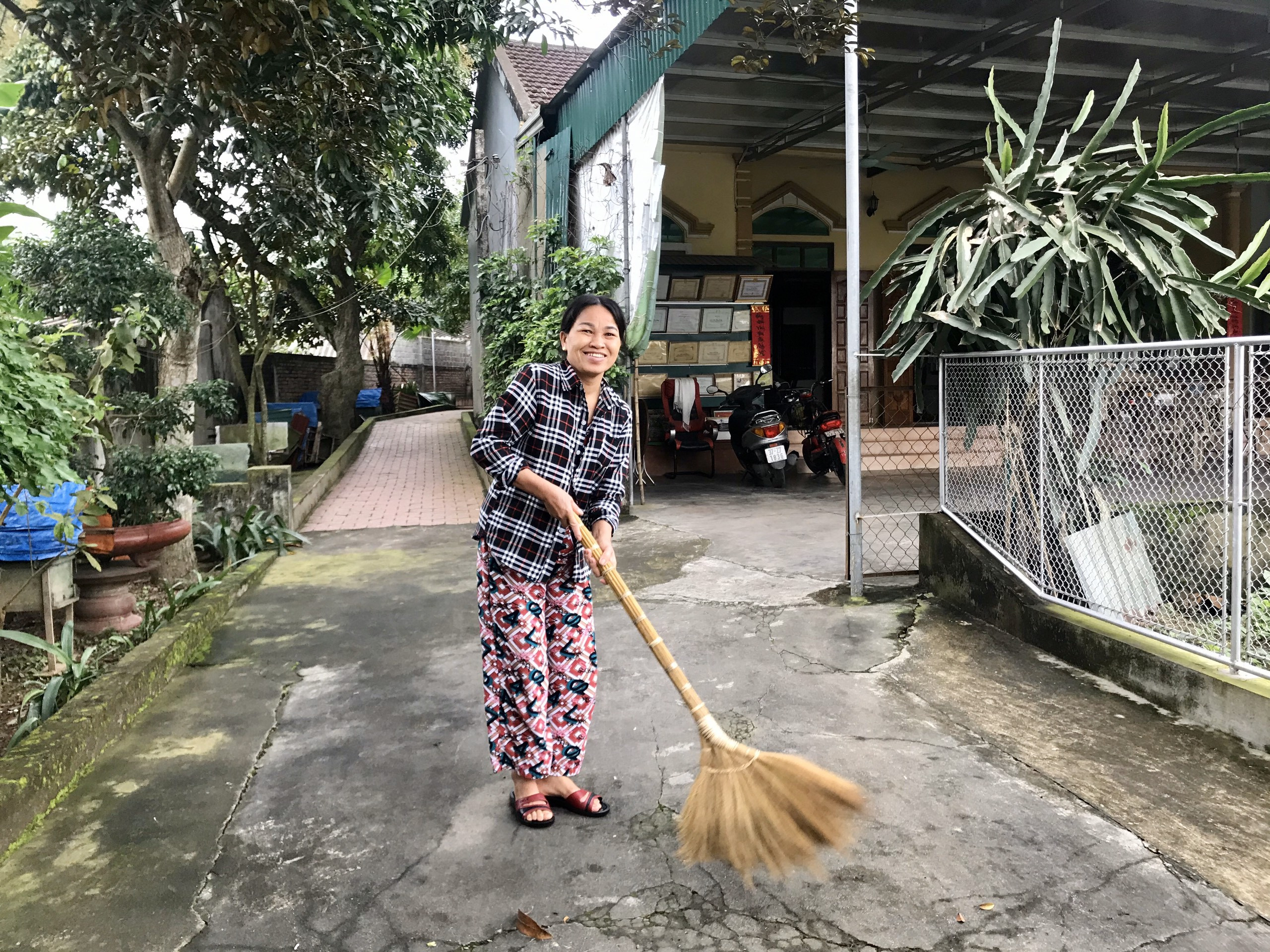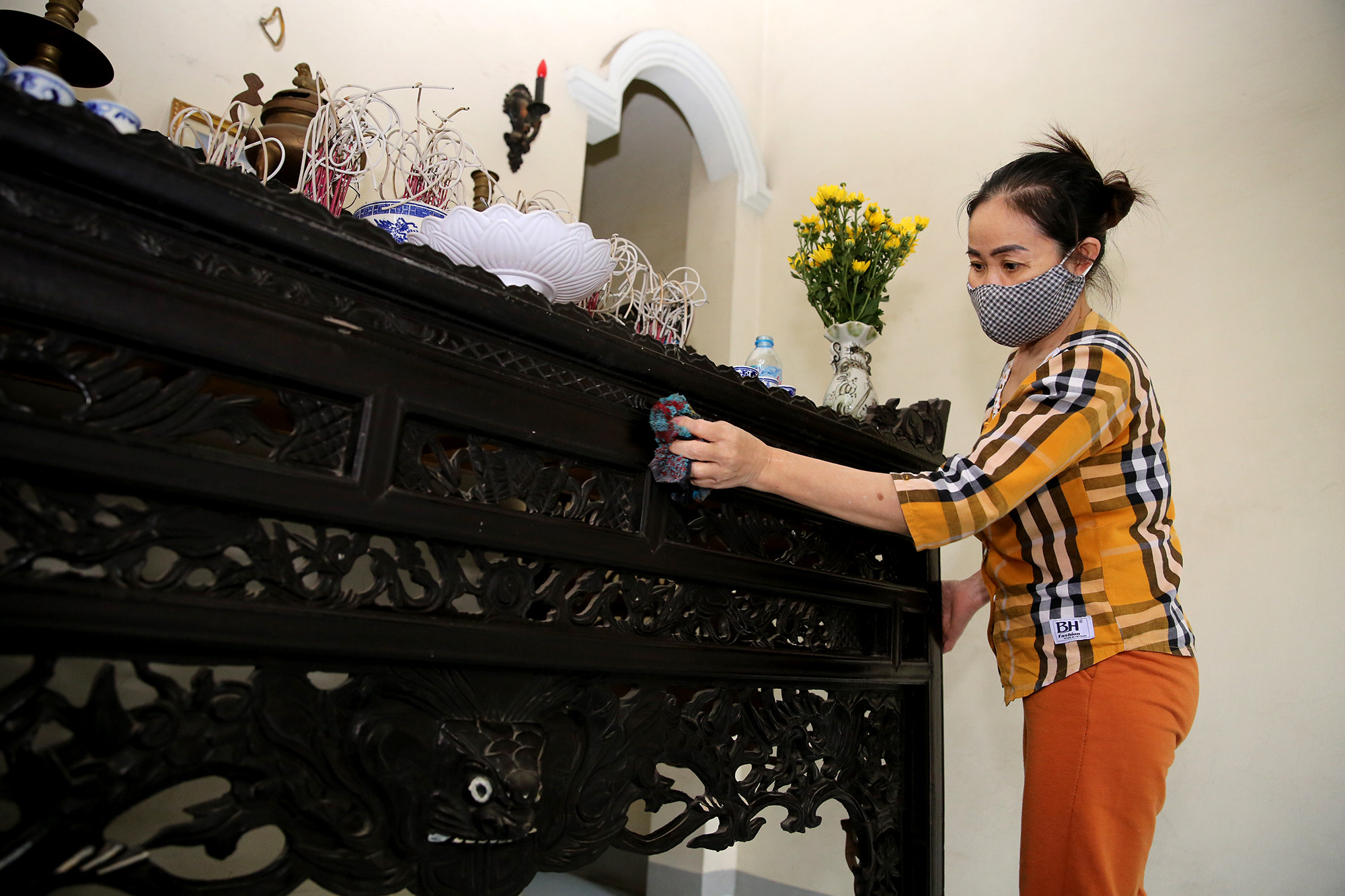Must sign a labor contract when hiring a domestic worker
(Baonghean) - Decree 28/2020/ND-CP of the Government, effective from April 15, stipulates that employers and employees who are domestic workers must sign labor contracts.
Oral contract, no social insurance
Ms. Nguyen Thi Doan (born in 1971) from My Thanh commune, Yen Thanh district has been working as a housekeeper for 5 years. Ms. Doan said that because of her circumstances, she needed to earn extra income and the job of a housekeeper was quite suitable for her, so through the introduction of friends and relatives, she came to Vinh city to work as a housekeeper.
Luckily, she met a kind boss and her family was small, so for 5 years she worked as a maid for a family in Vinh City. Doan's main job was cooking and cleaning the house.
Sharing about the agreement between her and the employer, that is, the landlord where she worked as a housemaid, Ms. Doan said that the two parties were introduced by acquaintances and then verbally agreed on the work requirements without a labor contract. “The landlord also did not mention paying for insurance. I myself did not think about buying social insurance,” Ms. Doan said.
She has now moved to work as a housekeeper for a family in Do Luong district, but the agreement between her and the homeowner does not mention social insurance or a labor contract.
 |
| Ms. Nguyen Thi Doan has been working as a housekeeper for more than 5 years. Photo: HT |
Ms. Doan said that she earns a few million VND each month, and if she deducts social insurance contributions, the remaining amount is not much. Moreover, she is nearly 50 years old, and if she buys social insurance, when she receives it, the monthly salary will not be enough.
According to Ms. Doan, most of the people she knows who work as domestic helpers do not buy social insurance, but only buy health insurance for their families. Most of the domestic helpers are people with many difficulties, so buying health insurance is already an effort for them.
Similarly, Ms. Ngo Thi Dung in Dien Ky commune, Dien Chau district is over 50 years old this year, and has many years of experience working as a domestic helper in many cities such as Hanoi, Vinh city, Ha Tinh city. She said that she and many other domestic helpers have never thought about buying social insurance.
Currently, she is doing housework for a family in Quang Trung ward, Vinh city, her monthly salary is 5 million VND, not including food. "The landlord is also a good person, in addition to the salary, every time I go back to my hometown, the landlord gives me gifts, cakes, and clothes. However, I have never heard about paying social insurance" - Ms. Dung shared.
Regarding the employers, through discussions with many household owners in Vinh City, it was found that most of the families that hire domestic workers have verbal contracts and have not signed labor contracts. Ms. Nguyen Thi Kim Lien, Trung Do Ward, said that her family has hired domestic workers for a dozen years now, and has even changed many people.
However, she herself did not understand the regulation that requires signing a contract with a domestic worker, so she only made a verbal agreement. The workers who used to work for Kim Lien's family (aged from 20 to 50) did not buy social insurance, but only bought health insurance. Some did not even buy health insurance.
 |
| Most domestic workers have not paid social insurance. Photo: Archive |
Early application in practice
Regarding new legal policies related to the rights and obligations of employers and domestic workers, Dr. and Lawyer Nguyen Trong Hai - Trong Hai and Associates Law Office said that according to the provisions of the 2012 Labor Code and related legal documents such as Decree No. 27/2014/ND-CP; Circular 19/2014/TT-BLDTBXH guiding the implementation of a number of articles of Decree No. 27/2014/ND-CP; Decree 95/2013/ND-CP amended and supplemented Decree 88/2015/ND-CP; replaced by Decree 28/2020/ND-CP (effective from April 15, 2020), employers and domestic workers must sign labor contracts, the time agreed by the parties.
It can be seen that the rights of one party are the obligations of the other party and vice versa. Regulations on labor contracts (regulations on the right to unilaterally terminate the contract, severance pay, etc.); wage policies (salary levels, severance pay, wage deductions, bonuses, medical examination and treatment costs, etc.); working hours, rest hours (working hours for minors, annual leave, holidays, etc.); labor safety, labor hygiene; discipline, etc. of employers and domestic workers are clearly stipulated in Decree No. 27/2014/ND-CP and Circular No. 19/2014/TT-BLDTBXH, ensuring all basic rights and obligations of employers and employees.
Regarding social insurance and health insurance, Clause 2, Article 181 of the Labor Code, Article 19 of Decree 27/2014, it is recognized that employers are obliged to sign labor contracts with domestic workers, but are not required to pay social insurance for domestic workers. Instead, employers must be responsible for paying an additional amount at the same time as the employee's salary payment period, equivalent to the compulsory social insurance and health insurance premiums that are the responsibility of employers according to the provisions of the law on social insurance and health insurance so that employees can take care of their own insurance.
Dr., Lawyer Nguyen Trong Hai
Thus, employers are obliged to sign a written labor contract but are not required to pay social insurance for domestic workers. However, the law's regulations on policies related to domestic workers have also shown an important step forward in protecting the rights of workers and making domestic work an official profession in society. At the same time, it helps protect the rights of domestic workers before the law if disputes arise, creating conditions for domestic workers to pay social insurance and health insurance like other professions.
Therefore, these regulations need to be implemented effectively in practice soon. And in the implementation process, it is necessary to resolve some remaining problems, such as how to regulate the age of social insurance contributions for domestic workers when in reality there are many domestic workers who are often over 40, 50 years old, and in some other cases they are minors. How to handle hourly domestic workers, or those who have agreed to do domestic work before the law takes effect...
 |
| Leaders of the Provincial Federation of Labor convey policy content on social insurance, health insurance and unemployment insurance. Photo: Archive |
In addition, it is also necessary to promote propaganda work so that employers and employees understand and strictly implement the signing of labor contracts, as well as issues related to social insurance for domestic workers, because this is also the basis for resolving arising labor disputes, while ensuring the rights of employees.

